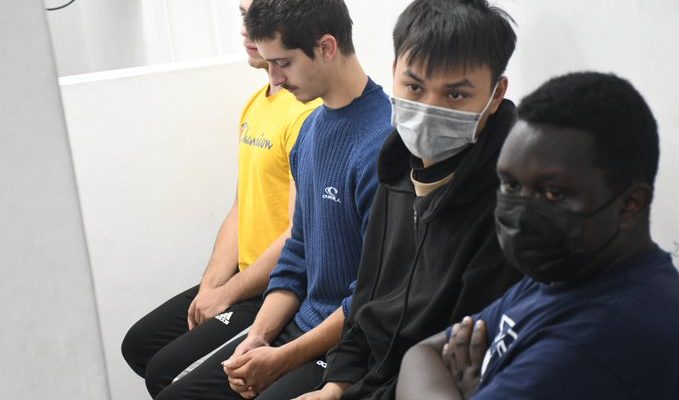By Dorothy Musyoka
The Office of the Director of Public Prosecutions (ODPP) has called for a sentence for four individuals who pleaded guilty to illegal possession of more than 5,000 live queen garden ants.
Belgian nationals Lornoy David and Seppe Lodewijckx, Vietnamese national Duh Hung Nguyen and Kenyan national Dennis Ng’ang’a appeared before Senior Principal Magistrate Njeri Thuku at the Jomo Kenyatta International Airport (JKIA) Law Courts.
The accused admitted to trafficking queen ants valued at Ksh 1.2 million.
During court proceedings, prosecutors Allen Mulama, Paula Rono, and Bramwel Shitsama presented damning evidence, including a detailed report by the Kenya Wildlife Service (KWS) that emphasized the ecological and economic value of the species.
KWS described the case as part of a disturbing new wave of biological trafficking involving live insects like queen ants and praying mantises.
Investigations revealed that the ants were concealed in specially designed test tubes manufactured in China sophisticated containers built to evade airport security scanners and capable of sustaining live insects for up to two months.
The traffickers had falsely declared the shipment as wooden carvings and toys.
“The ants were smuggled using specially modified test tubes manufactured in China. These containers are engineered to bypass airport scanners and can sustain live ants for up to two months, complicating detection efforts,” stated the ODPP.
The report further disclosed that queen ants, sold locally to brokers for around Ksh 50, are resold internationally at prices ranging from 60 to 100 Euros (Ksh 9,000–15,000) each.
“In the local supply chain, a single queen ant is sold to brokers for around Ksh 50, who then resell them for approximately Ksh 150. In European markets, however, they can fetch between 60 and 100 Euros each (Ksh. 9000 and Ksh. 15,000), used primarily for culinary and decorative purposes,” explained the ODPP.
In support of the prosecution, the National Museums of Kenya submitted a report authored by a leading entomologist, which outlined the crucial ecological functions of ants.
The expert warned that large-scale extraction of queen ants could cause irreversible environmental damage, including local extinctions, reduced biodiversity, weakened ecosystems and the spread of invasive species.

